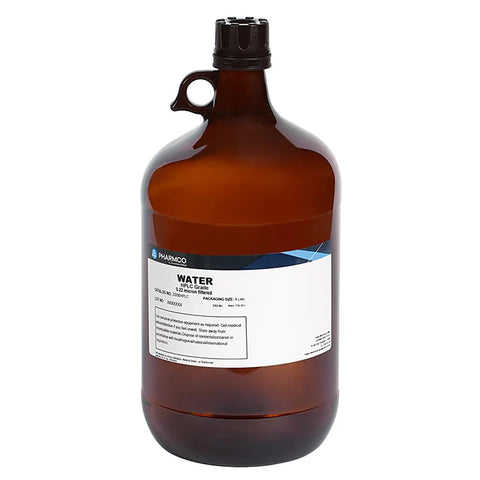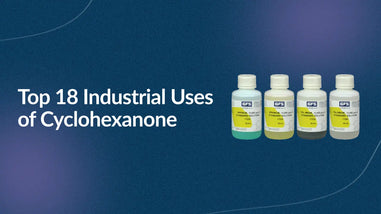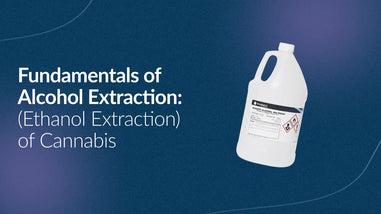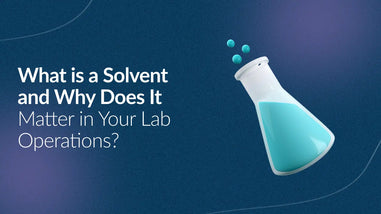- No products in the cart.
In the world of analytical chemistry and laboratory research, precision and accuracy are paramount. Researchers and scientists depend on a multitude of instruments and techniques to achieve these goals, with High-Performance Liquid Chromatography (HPLC) being one of the most indispensable tools in their arsenal. While the columns, detectors, and solvents used in HPLC systems are crucial, it's often the overlooked element - the water - that plays an essential role in the success of any HPLC experiment. In this article, we'll delve into the critical role of HPLC water in laboratory work, emphasizing why it's worth paying attention to this seemingly mundane aspect of chromatography.
The Basics of High-Performance Liquid Chromatography
Before we dive into the significance of HPLC water, let's first understand what HPLC is and why it is so widely used in laboratories.
High-Performance Liquid Chromatography is a powerful analytical technique used to separate, identify, and quantify compounds within a mixture. It operates on the principle of passing a liquid sample through a column packed with solid particles. The components of the sample interact differently with the column material, causing them to separate based on their chemical properties. These separated components are then detected and quantified, providing valuable data for a wide range of applications, from pharmaceutical analysis to environmental monitoring.
The Role of Water in HPLC
Water is a fundamental component in most HPLC mobile phases, which are the solvents used to carry the sample through the chromatographic system. In this context, water serves multiple crucial functions:
-
Solvent: Water often acts as a primary solvent or a co-solvent in the mobile phase, depending on the nature of the analytes being separated. Its ability to dissolve a wide range of compounds makes it a versatile choice in chromatographic applications.
-
Eluent: In ion chromatography, water can function as an eluent, helping to separate ions based on their charge and affinity for the stationary phase.
-
Buffer: For some HPLC methods, especially those involving pH-sensitive analytes, water is used as a buffer to maintain the desired pH level in the mobile phase.
-
Diluent: Water can be used as a diluent to prepare samples for injection into the HPLC system. Ensuring the purity of the water used in sample preparation is crucial to avoid introducing contaminants that could skew results.

The Importance of Water Purity
While water's role in HPLC is clear, its quality is equally critical. The purity of the water used can significantly impact the results of HPLC analyses. Here are some key reasons why water purity matters:
-
Column Longevity: Impurities in water, such as ions, particulates, or organic compounds, can accumulate on the HPLC column, leading to decreased column performance and a shorter lifespan. This can result in increased costs due to more frequent column replacement.
-
Baseline Stability: Purity of the mobile phase, including the water, is essential for achieving a stable baseline in the chromatogram. Even minor impurities can cause baseline noise, making it difficult to accurately detect and quantify peaks.
-
Analytical Accuracy: Contaminated water can lead to interference with analyte peaks, affecting the accuracy and reliability of analytical results. Researchers may misinterpret or misidentify compounds in their samples, potentially leading to incorrect conclusions.
-
Reproducibility: Consistency is a hallmark of scientific research. Inconsistent water quality can introduce variability into experiments, making it challenging to reproduce results or compare data from different runs.
Water Purification Methods for HPLC
To ensure the highest water purity for HPLC applications, laboratories employ various water purification methods. The choice of purification method depends on the specific requirements of the analysis and the type of HPLC system used. Here are some common methods:
-
Deionization: Deionization, often achieved through ion exchange resins, removes ions from water, reducing its conductivity and ensuring its suitability as a mobile phase.
-
Distillation: Distillation is a straightforward method to obtain high-purity water by vaporizing it and condensing the vapor. While effective, it may not be the most efficient or cost-effective method for large-scale HPLC applications.
-
Reverse Osmosis: Reverse osmosis utilizes a semi-permeable membrane to remove impurities from water. It is commonly used as a pre-treatment step in water purification systems.
-
Ultrafiltration: Ultrafiltration involves the use of ultrafine membranes to separate water from contaminants, achieving high purity.
-
UV Oxidation: UV oxidation systems expose water to ultraviolet light, effectively breaking down organic impurities.
-
Online Water Purification Systems: Many modern HPLC systems are equipped with online water purification units that continuously provide purified water, eliminating the need for external water purification systems.
Where to Purchase HPLC Water
When it comes to sourcing high-quality HPLC water and ensuring the reliability of your laboratory experiments, choosing a reputable supplier is of paramount importance. Lab Pro Inc. is a trusted name in the industry, known for its commitment to delivering top-notch laboratory supplies and chemicals. You can procure HPLC water from Lab Pro Inc., confident in the knowledge that their products meet stringent quality standards. Whether you need deionized water, ultrapure water, or any other specialized grade, Lab Pro Inc. offers a wide range of options to suit your specific HPLC requirements. Additionally, they provide the convenience of online ordering and swift delivery, making the process of acquiring HPLC water efficient and hassle-free. Partnering with a reputable supplier like Lab Pro Inc. ensures that the essential role of high-performance liquid chromatography water in your lab work is well-supported with quality products.
Conclusion
In the world of laboratory research, precision is everything, and every detail matters. High-Performance Liquid Chromatography (HPLC) is a cornerstone analytical technique that depends on the purity of its components, including the often-overlooked HPLC water. The quality of water used in HPLC applications can significantly impact the accuracy, reliability, and reproducibility of results.
By understanding the essential role of HPLC water and investing in water purification methods, laboratories can ensure that their chromatographic analyses produce dependable and meaningful data. So, the next time you perform an HPLC experiment, remember that the purity of the water you use plays a crucial role in the success of your research.
For over 40 years, Lab Pro Inc. has been committed to delivering highest quality lab chemicals, lab supplies, hand tools, lab equipment, reagents, distance learning kits, and cleanroom PPE apparel. Renowned by global medical device companies and laboratories, we ensure exceptional quality in every product. Contact us online or call 888-452-2776 to learn more. Discover top-notch lab supplies and elevate your experiments today!












































